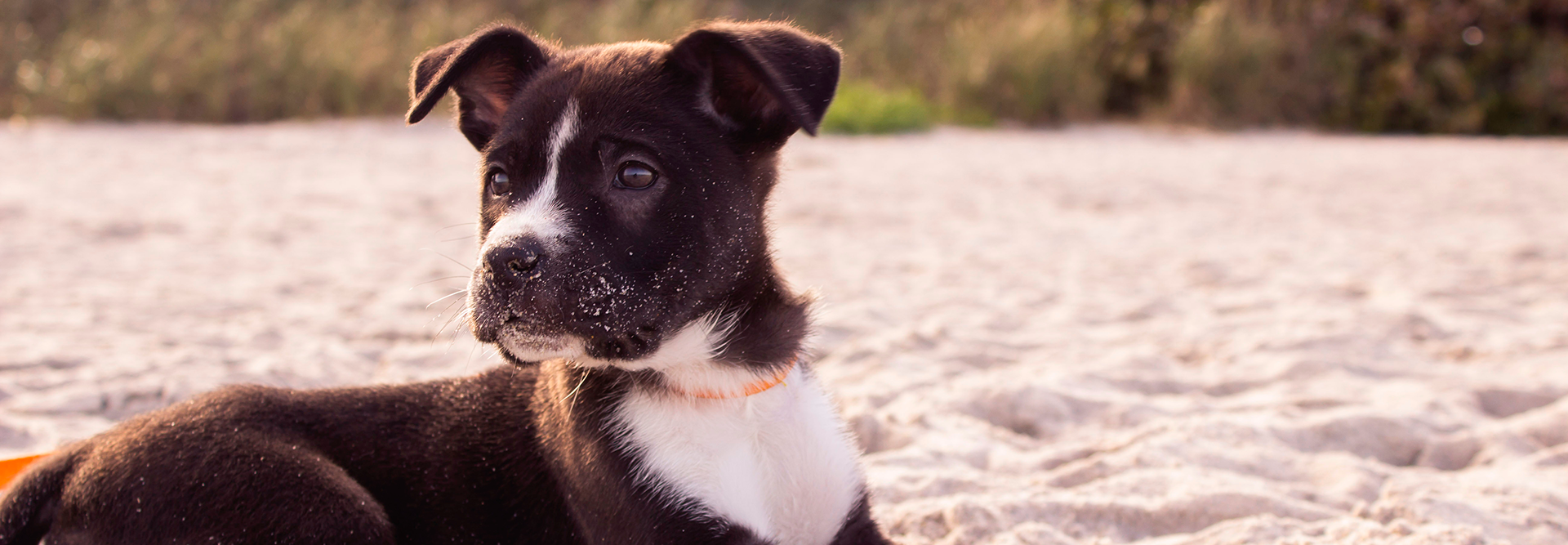
They say that the memory of a goldfish doesn’t last longer than 30 seconds, but how long will it take for a puppy to forget the last training session? For new puppy parents who are trying to train their fur babies, is there such a thing as too much training? And what will happen if […]
They say that the memory of a goldfish doesn’t last longer than 30 seconds, but how long will it take for a puppy to forget the last training session?
For new puppy parents who are trying to train their fur babies, is there such a thing as too much training? And what will happen if you don’t train your puppy enough?
In this article, Petland Florida will lay out for you how often you should train your puppy so that he retains and adheres to all that you’re teaching him, but doesn’t get overworked.
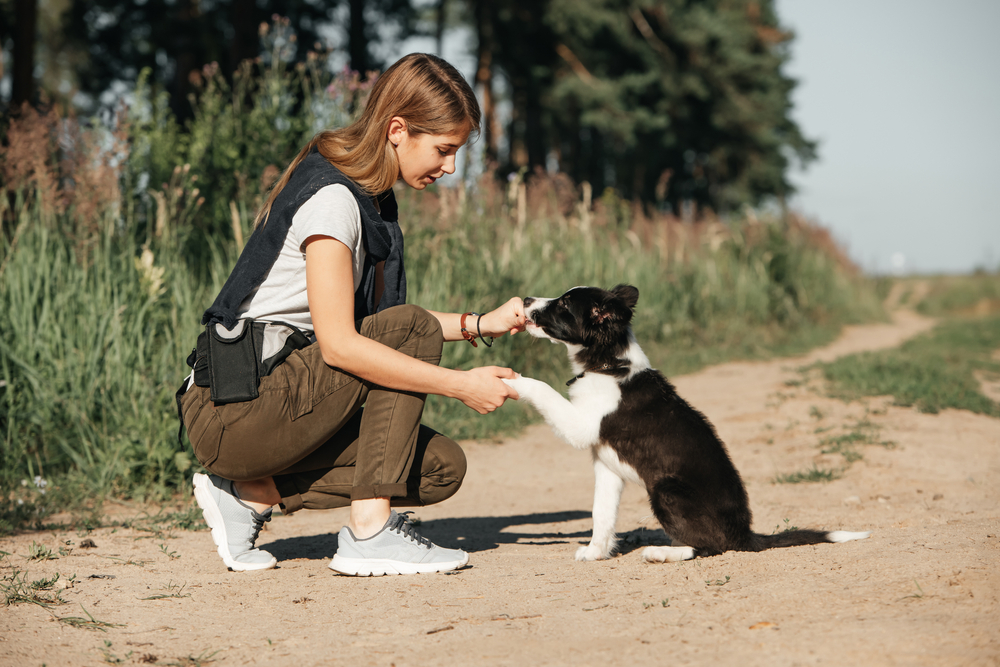
One of the biggest reasons that people love dogs so much is thanks to their willingness to learn. All canines are pack animals, and part of the “pack” nature is that each member of the pack has a position. There are rules that come with each position, and those rules keep order within the pack. Even though your puppy isn’t a wild canine, deeply ingrained in his DNA is a need to quickly learn his position within the pack and the rules he must uphold in order to be a valued member of the pack.
Because of this, a puppy will be keenly attuned to noticing what pleases you and what displeases you. Whatever behaviors he gets rewarded for, he will continue to do. And when he does something that does not earn him a reward, or worse, earns him a time out, he will decide for himself that doing that thing isn’t worth it. This is why positive reinforcement training is so effective with dogs.
The first thing to know about training your puppy is that it will be your job to not reward your puppy for behaviors that you do not want him to do. This might seem straightforward and obvious, but a lot of new puppy parents have difficulty with this because their puppy is so cute. A puppy can do something wrong, like persistent nipping during play, but if its owner smiles, coos, and continues to play with the puppy, the puppy will learn that nipping is good.
Whatever behaviors you “accept and reward,” your puppy will learn that these behaviors are good. Likewise, whatever behaviors that earn your puppy a negative result, like a time out, your puppy will learn that he must stop those behaviors.
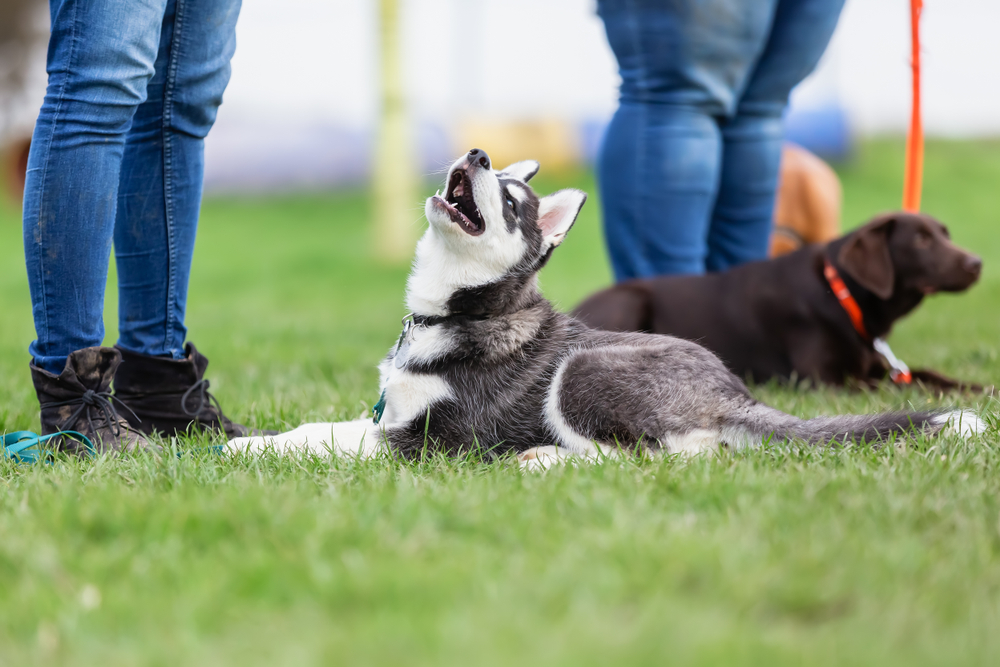
As you set forth with the goal of training your puppy, you should first get clear on the house rules. Of course there are many obvious house rules, like the rule that your puppy shouldn’t go to the bathroom inside your home. This is part of housebreaking your puppy. But there are also less obvious rules that are specific to your home and household. For example, there could be rooms in the home that you do not want your dog to go into. Maybe you do not want your dog to sit on furniture. Or maybe you’re not going to allow your dog to sleep in the bed with you.
Think of things on a long term basis, and decide household rules accordingly. Then teach your puppy those rules and uphold them. For example, if you do not want your dog to spend the entirety of his 12 year life sleeping in the bed with you, then you shouldn’t let him sleep in the bed with you as a puppy. If you do not want to spend the next 10 years dealing with your dog begging for food while you eat dinner, then don’t treat him to table scraps as a puppy while you hold him and eat your own dinner.
Some dog owners don’t mind their dogs jumping up on them to greet them when they get home. This is a preference, and so, these owners don’t need to train their puppies not to jump up. But if your preference is that, long term, you don’t want your dog to jump up on you or your friends and visitors, then you’ll need to introduce him to this rule when he’s a puppy.
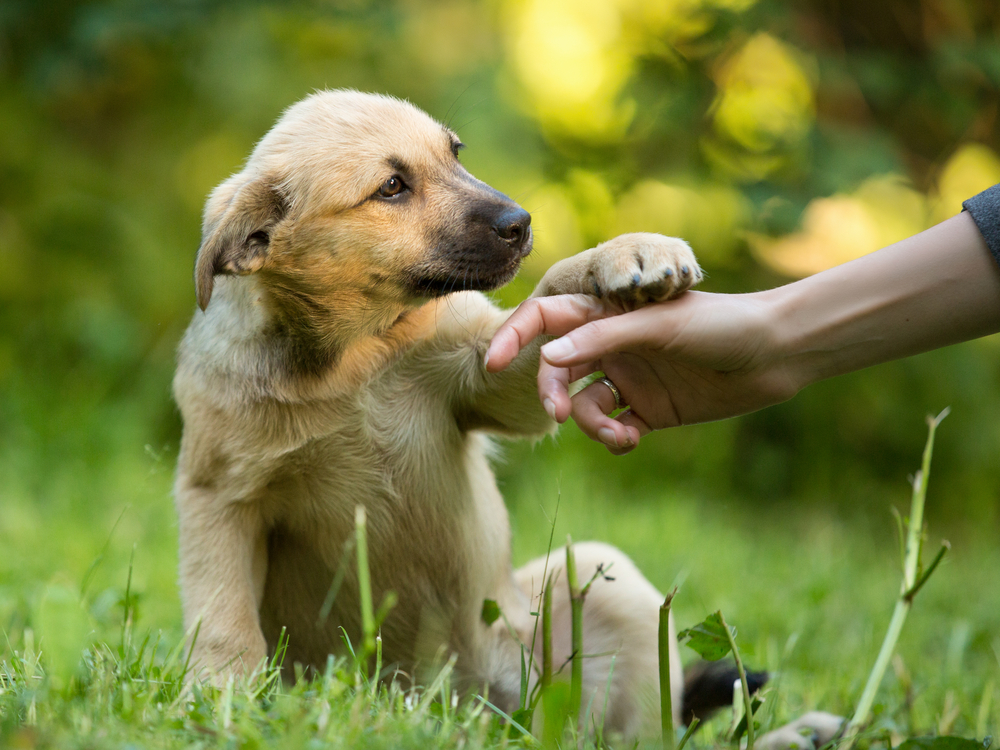
Remember the good old days of high school and college? There was probably a time when you should’ve reviewed the lecture notes you took as the semester unfolded. But you didn’t. Instead, you made no effort to memorize much of anything, and then the night before a big exam, you “crammed.” Hey, it works. The next day, you aced the exam. But the following month and year for that matter, you realized that you retained none of the information you crammed into your brain.
This is an example of strong short term memory that never transfers information into your long term memory. Your puppy, like you, has both short and long term memory. You want all of your puppy’s training to be retained in his long term memory. This is the biggest reason why you should try to avoid “cramming” a lot of commands, rules, and information into a training session with your puppy, only to be followed by not conducting another training session with him.
It also stands to reason that training your puppy intensively for a month, and then no longer training him, is not going to be effective. Puppyhood lasts at least 8 months, and for some breeds, like Newfoundlands, puppyhood can last until the dog is a full year old. We recommend that you set your mind to the commitment of regularly training your dog and testing his obedience for the full 8 months of his puppyhood.
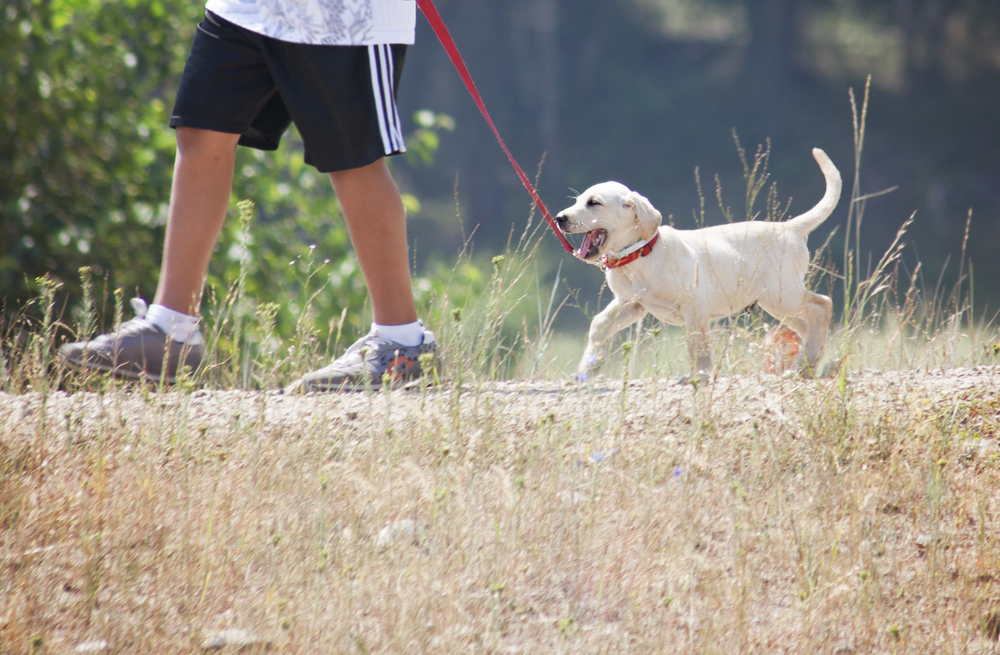
Now we come to the purpose of this blog—answering the question of how often you should train your puppy. Similar to the difference between cramming in a few hours versus regularly studying throughout a longer period of time, there is a difference between training your puppy daily versus one or two times a week. In the world of puppies, daily puppy training is a lot like “cramming.” But this has more to do with owner fatigue than anything. Pet owners that start off training their puppies every day, very quickly believe (mistakenly) that their puppy has mastered everything after a few weeks, and then these owners stop training. They soon discover that their older puppy isn’t obeying them.
This is why training your puppy twice a week is far more effective than training him every day. And interestingly, training your puppy only once a week is still far more effective than a daily training session.
A single training session should be at least 5 minutes, but the sweet spot is 15 minutes, as long as the commands covered are taught with a variety of activities. For example, if you really only have five minutes, then using a rewards-based (doggy treats) training on the commands “stay,” “come,” and “sit” will be as much information as you can cover. However, if you have 15 minutes, then the first 5 minutes can be spent on the simple commands we just mentioned. Then the next 10 minutes can be spent on an active / athletic command, such as “heel” (while you walk or jog in a large circle), “fetch,” or even hiding an item and asking your puppy to retrieve it for you.
Keeping training sessions short and doing no more than two training sessions per week will be the most effective in terms of your puppy retaining the information and learning the rules. The trick, of course, is that in-between training sessions, i.e. throughout the week, your natural interactions with your puppy will include the commands he has learned, which gives him a chance to put into practice all that he’s learning with you. For example, if one of your friends comes over,your puppy may become so excited that he jumps up on your friend. Firmly and consistently use the “down” command, and gently hold him down if he doesn’t quite “get it.”
As the weeks go on, you’ll pleasantly discover that your puppy is able to live up to the commands you’ve taught him during training.
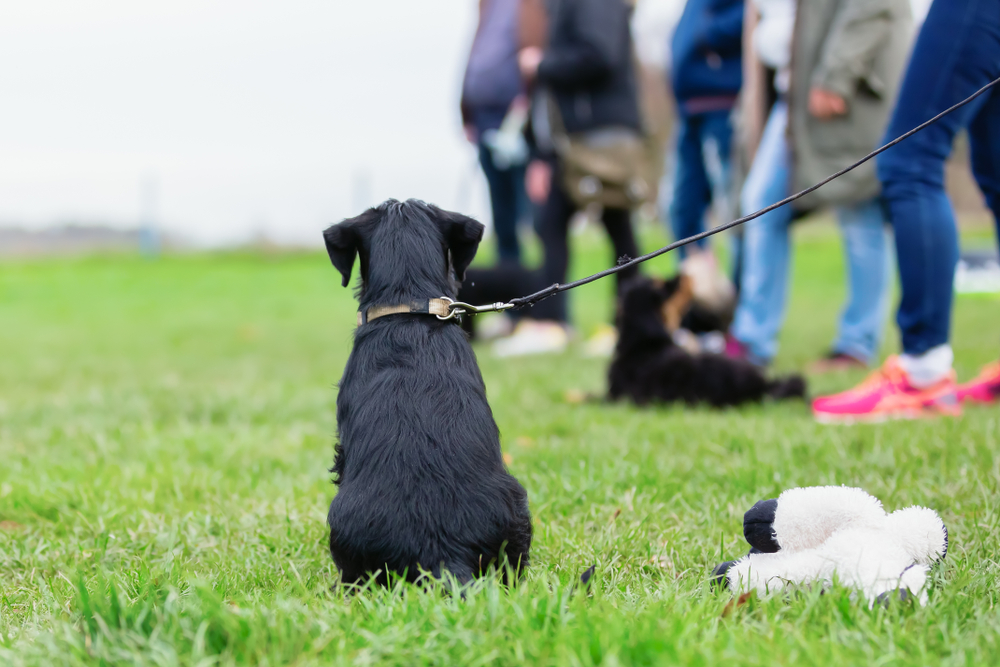
Puppy training classes are a great way for you and your puppy to bond, because these classes actually train you to work with your puppy. The professional trainer will actually train you how to communicate with and control your puppy, which will be a ton of fun for both of you! Also, these classes are typically group classes where your puppy will be exposed to other puppies and their owners. This added layer of socialization can enrich your puppy’s development.
Puppy training courses of this nature have a fixed number of classes and you pay for the entire course. Generally, a puppy training course is 6 weeks long, and you and your puppy will have one class per week.
The specific curriculum of puppy training classes will of course depend on the facility. We recommend that if you’re calling around to find the best puppy training course for you that you ask as many questions as possible, especially those that address any challenges you’ve been facing with your new furry friend.
Generally speaking, the following are usually included in most puppy training courses:
One of the greatest benefits of buying a puppy from Petland Florida is that we offer our new pet parents puppy training perks. There are many puppy training options offered, from weekly training sessions in our stores, to Zoom call puppy training Q&As, to one-on-one training with a professional dog trainer.
Here’s an overview of what Petland Florida has to offer:
From all the staff at Petland Florida, we highly recommend that you check us out if you want to get a new puppy! Our knowledgeable pet counselors can answer your questions and tell you about our puppy training perks! We hope to see you at one of our Florida locations in Pembroke Pines, Davie, Plantation, Kendall, Largo, Naples, or Doral soon!